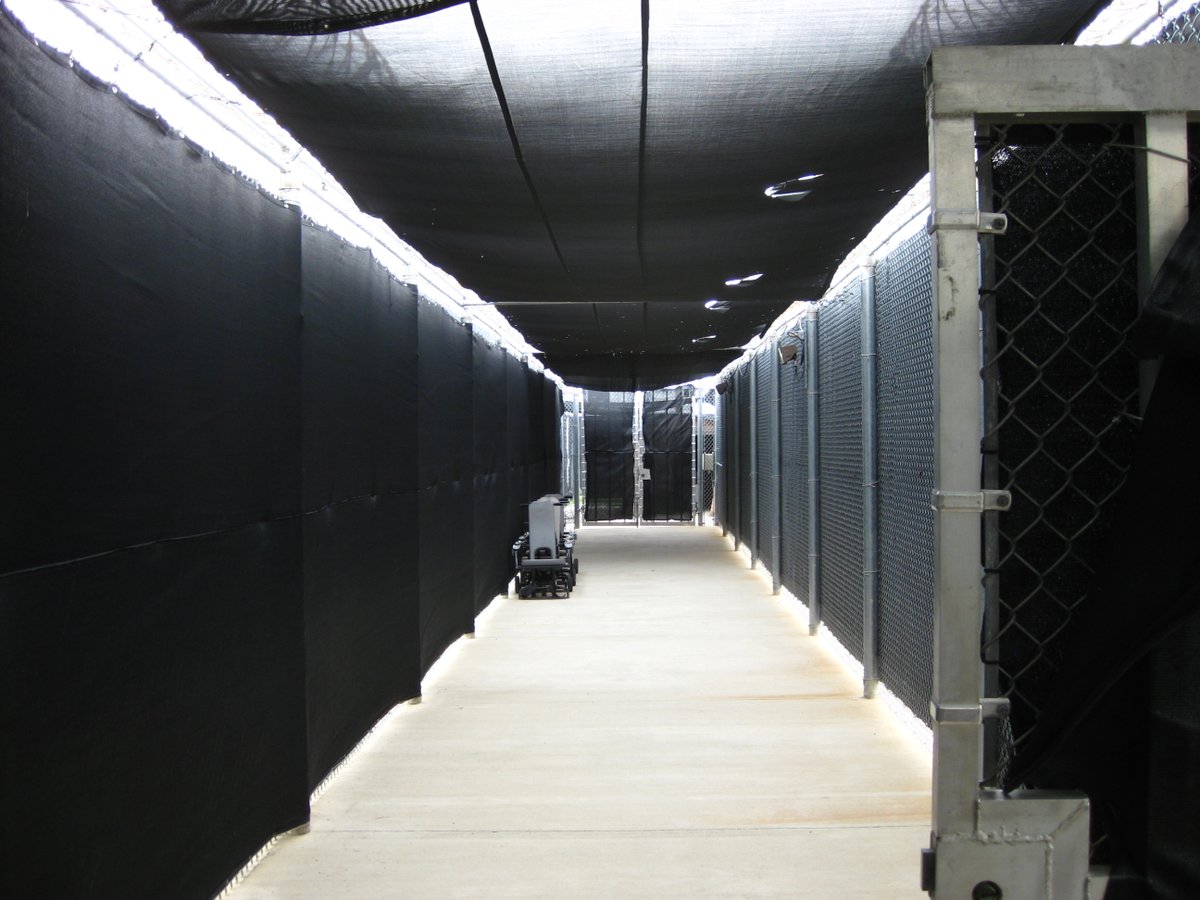The topic: What's on tap, who will testify at the February hearings.
Also, probably, will Dr. Jessen testify tomorrow.
nytimes.com/2020/01/27/us/…
She asks if they were discussing the case.
No, Dr. Mitchell replies, they are planning an ice-climbing trip to Alaska and were chatting about that.
Dr. Mitchell didn't remember doing that. She showed him a form, refreshed his memory.
"Bin Attash was put in the standing sleep deprivation position, naked, with feed shackled and hands shackled at approximately chin level..."
Dr. Mitchell replies that he experienced standing sleep deprivation too, had trainers stand him inside a claustrophobic box, shows it was very narrow with his hands.
In it, Bin Attash is allowed "his leg prosthesis and sock."
It has items "forfeited due to deceptive/misleading/evasive answers," including a Quran and toothbrush.
Dr. Mitchell: The site manager would have had to approve that.
Background on "rectal rehydration" here:
nytimes.com/2020/01/27/us/…
A medical expert "suggests no more than another day/24 of ceiling shackles/sleep deprivation in current standing position,"citing "appearance of limb and its clinical significance."
HIPPA = Health Insurance Portability and Accountability Act that was passed by Congress in 1996.
Either way, she says he waives. Mr. bin al-Shibh gets to see it. Not us.
Dr. Mitchell: "The foot looks swollen to me and slightly discolored unless he's tanned on that part of the leg...
Sometimes my ankles are the size of a cantaloupe."
Dr. Mitch doesn't recall ever interrogating detainees in diapers. They were "nude, had a towel or had clothes," he said.
Dr. Mitchell offers that Mr. bin Attash was cordial as he volunteered that helped destroy "those Buddahs" with the Taliban.
Ms. Bormann notes that's not mentioned in the report.
He reaches for his code-name key, and Prosecutor Groharing objects..
*=Rendition Detention Group.
(For example: A CIA officer known as the Preacher who helped waterboard KSM is NZ2.)
OCA=Original Classification Authority-CIA
Court resumes at 2:05 p.m. with Dr. Mitchell returning to the stand for more defense questioning followed by redirect, prosecution questions and possibly more questions from the judge. The order of that is still unclear.
Abu Zubaydah was upbeat and Mr. Nashiri was glum.
Aside: It's still uncertain whether we will hear from Dr. Jessen today.
Dr. Mitchell agrees that is what the document shows.
What the C.I.A. called "the endgame" -- planning for what to do about KSM and the others in the black sites.
--He's been shown a secret memo he's never seen before.
"I'm fascinated by it," he says.
He adds: "This was not about the move to Guantanamo."
(I missed the rest because of a disruption involving a wasp, and a soldier swatting his cap at it. Hoping it isn't redacted in the transcript of the public hearing when it comes out.)
Ms. Bormann says she'll have more questions about that in the secret session.
Prosecutor Groharing has questions about KSM's demeanor.
Dr. Mitchell says he started out as "hostile, kinda cocky, sarcastic and little bit belligerent."
After waterboarding, etc. "gradually over time he became a bit more forthcoming...
"They didn't know it," says Dr. Mitchell, explaining he would go "from cell to cell" and show pictures to a series of detainees. He called it "very synergistic."
He said the KSM he knew "was very charming," addressed him as "Abu Captain," never complained of nightmares or flashbacks.
"He never seemed to be particularly aroused."
He's "got a very intelligent mind... I found that he was one of the smarter guys that I dealt with."
KSM would "critique my questioning skills," he said, and suggest a different way to frame a debriefing question.
Dr. Mitchell says that debriefers who went for those were the least successful with KSM.
The sign signaled when KSM would answer interrogators' debriefing questions.
Drs. Mitchell and Jessen said he did best with structured times of prayer, questioning.
"He didn't like his headgear," and "wanted a particular kind of prayer rug." He complained that a guard gave him only the heels of the bread, and the CIA sent that guard home.
"I don't think he liked me. I don't think he liked any of us." Dr. Mitchell viewed him as a warrior, said Khallad volunteered that he helped the Taliban blow up the Buddhas because he, Khallad, "was an explosives expert on loan from Al Qaeda."
Dr. Mitchell said he engaged with Khallad as "warrior to warrior."
He said he never complained of flashbacks or nightmares.
He didn't want to talk to female debriefers, Dr. Mitchell says, because they weren't dressed as these women are."
nytimes.com/2019/12/27/us/…
"He was always pleasant," he said.
Prosecutor: Was he apathetic?
To a question from Baluchi laywer James Connell, Dr. Mitchell said his firm Mitchell, Jessen and Associates "probably" provided the security personnel on the flight that brought the 9/11 defendants to Gitmo in September 2006.
"He said it looked like a coffin. I didn't say it looked like a coffin. It actually looked like a refrigerator shipping box. It is what it is."
nytimes.com/2019/12/04/us/…
Nevin: You were the one who took him into your custody after going through the anal rape?
Prosecutor Groharing: Objection.
Mr. Groharing: Yes.
Mr. Nevin: What would you call it?
Judge Cohen: I will note that there is an objection to characterization and that I have made no legal finding on this.
You are the one who conditionally threatened to cut his children's throat.
Mitchell: I did.
Nevin: Can you think of a reason why he would want to charm you?
Mitchell: I can think of a dozen reasons.
Mitchell: I have no idea what was in his mind. He never once complained to me about my relationship with him. He never once expressed any fear of me.
Dr. Mitchell: I think you're mischaracterizing. I brought him as many good things as bad things. That disrupts that kind of classical conditioning.







